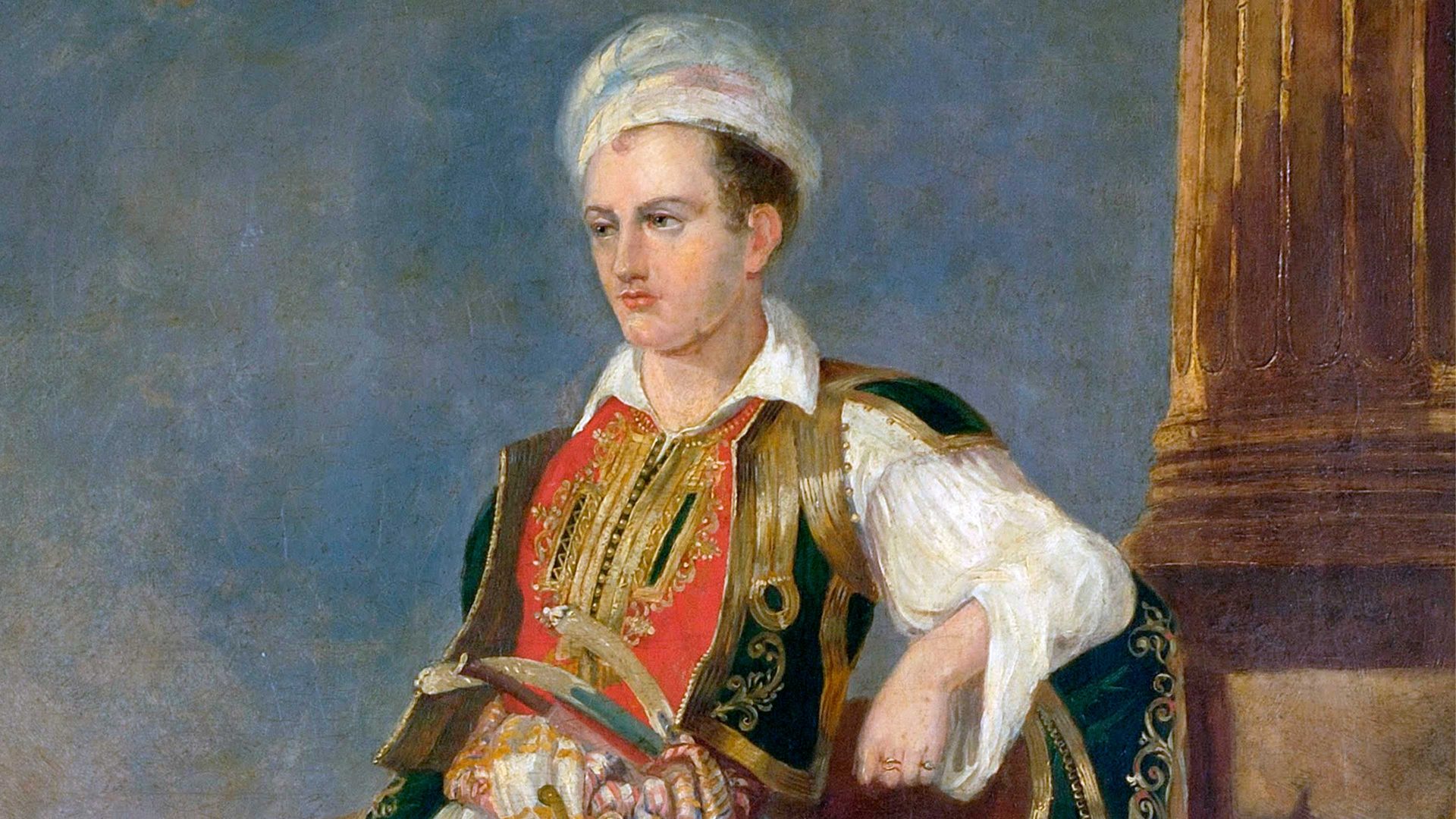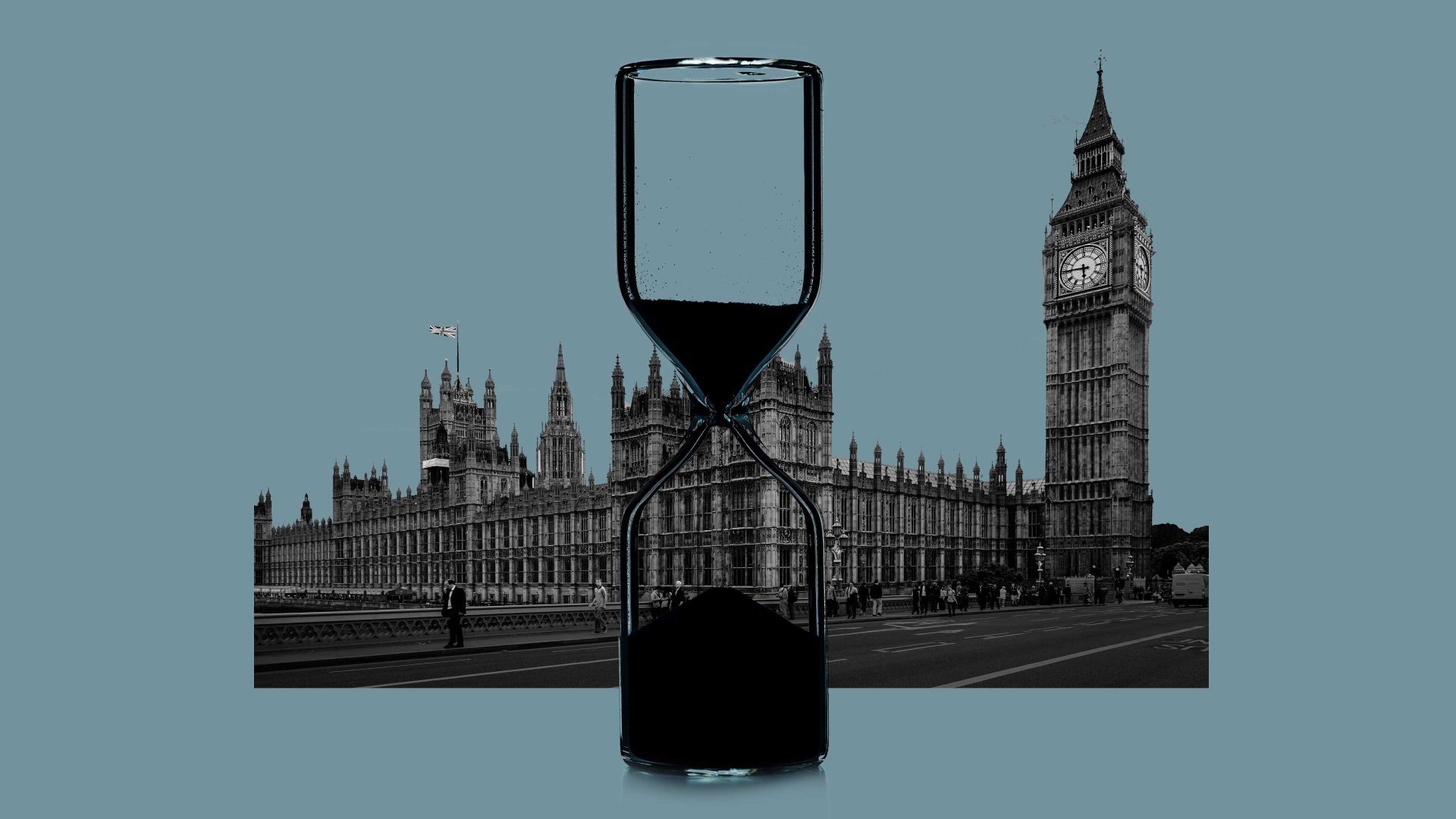He was better known than the King of England – he was like Brad Pitt and Einstein rolled into one person. That is how the president of the usually reserved Society for Hellenism and Philhellenism explained why, 200 years after his death, Lord Byron is still considered among the founding fathers of modern Greece.
That is in contrast to Byron’s reputation in the UK, which tends to be more concerned with his wandering moral compass and can be summed up by the remark of his one-time lover, Lady Caroline Lamb, that he was: “mad, bad and dangerous to know”.
But to Constantinos Velentzas, the society’s founder, Byron is a hero of the Greek revolution. It’s a perception shared across Greece. He left England in disgrace in April 1816 due to his failed marriage, numerous affairs, ambiguous sexuality and mounting debts. Byron died aged just 36 in Missolonghi, the unprepossessing Greek town in which he had united feuding factional interests and used his own funds to raise a navy and a battalion to liberate Greece from Ottoman rule.
Rather than pontificating in verse on social matters, he wanted to be a man of action. So, despite having spent time in Switzerland with the Shelleys and other romantics, in his epic poem, Don Juan, he mocked Wordsworth, Southey and Coleridge for their political complacency.
Velentzas explains: “From 1812 to 1816, he published oriental-themed narratives, creating the iconic Byronic heroes that transcended literature. Public opinion was familiar with these heroes, who were depicted in paintings, table clocks, porcelain vases, and all kinds of art, and when the Greek war of independence started, it identified Greek fighters with Byronic heroes.”
“Byron presented the Greek struggle as a clash of civilisations against barbarism, and it inspired Philhellenism.”
In 1824, when Byron died, news of his demise “not only brought the Hellenic struggle back into the international spotlight, but also reignited the Philhellenic movement at a crucial juncture,” said Velentzas. “The subsequent diplomatic and political actions triggered by Byron’s death culminated in the Battle of Navarino and ultimately led to the establishment of the modern Greek state.”
The first capital of modern Greece is Napflio, the attractive Peloponnese port – it was only later that Athens was reinstated. On an unprepossessing street at the top of the town, I stumbled across the Byron Hotel, while a little further along was Βύρωνoς (“Vyronas”) street. Indeed, most Greek towns have a street named in his honour, while Athens boasts an entire Vyronas district. A permanent monument to his role in the revolution will be erected in Athens this year.
Byron contracted a fever in the heavy spring rains of swampy Missolonghi, and was copiously “bled” by surgeons who sought to save him.
His heart is buried in Missolonghi. The rest of his remains arrived back in England in June 1824, where their burial in Westminster Abbey was refused. They lie instead in the family tomb in Newstead Abbey, Nottingham. His only legitimate daughter, the mathematician and theorist Ada Lovelace, is now commemorated on the pages of British passports.
My former Greek teacher, Antonia Gkioka, now living in London, told me that not every Greek child would be paying attention when taught about Byron at school, but expressed her own passion for him. “His self-sacrifice for the ideals of freedom and independence for the Greeks remains very touching,” she said. They are, she added, “values and ideals that no longer exist in our world.”
Paola Totaro is a journalist specialising in European affairs and social policy



